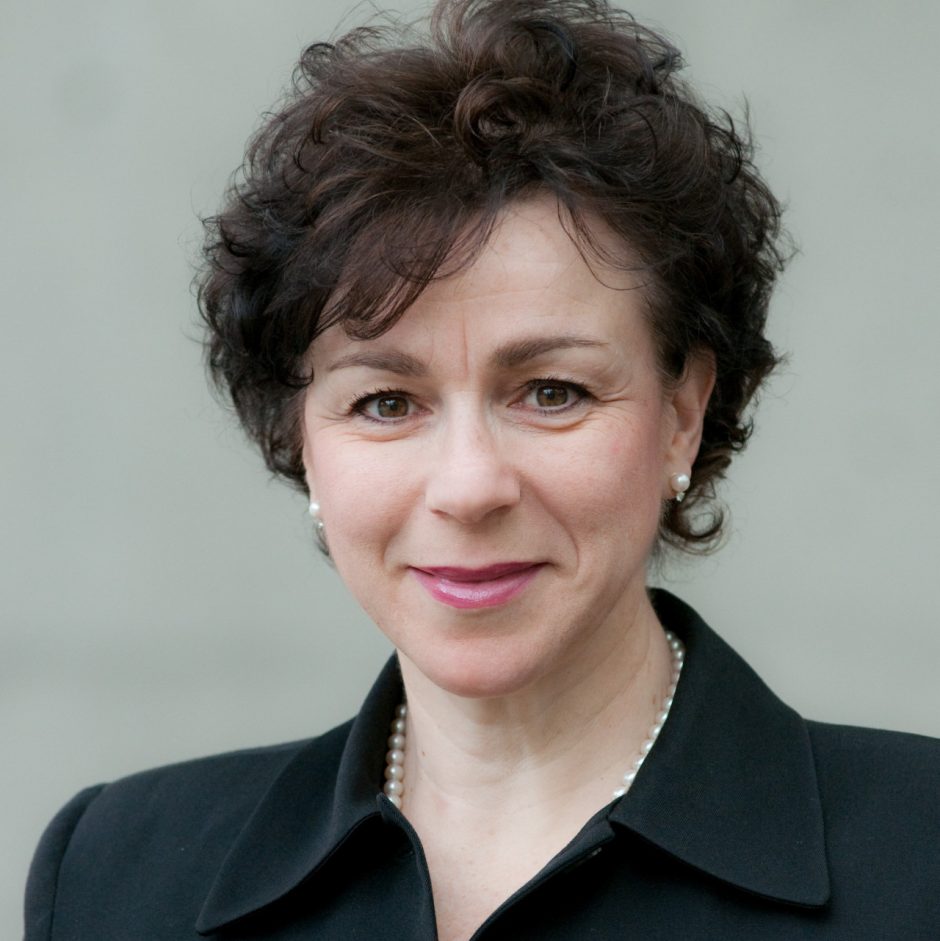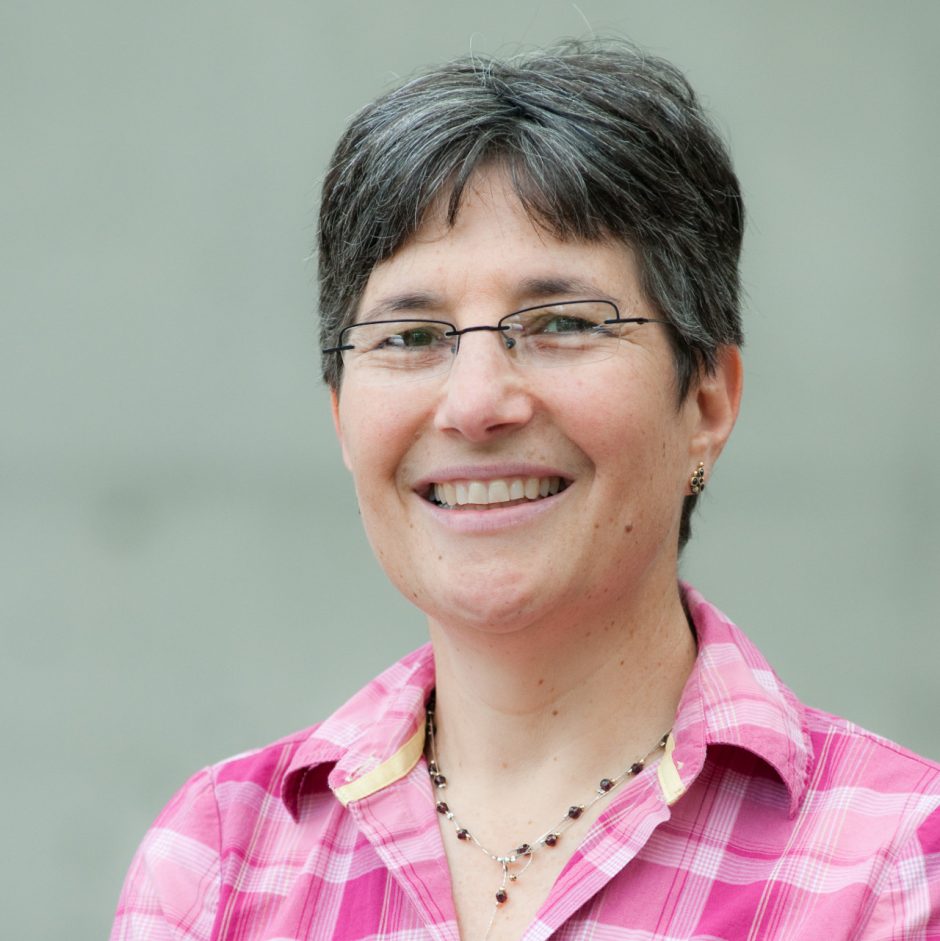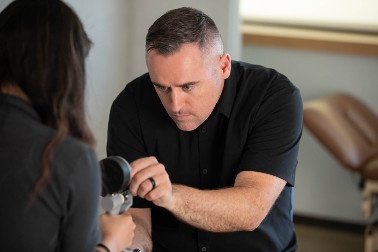
The Research Initiative Fund (RIF) is an annual faculty award designed to support new innovation in occupational therapy.
Each year, faculty from the Department of Occupational Science & Occupational Therapy can apply for up to $5,000 as seed funding for nascent research ideas, data gathering or small-scale pilot projects.
This funding acts as a springboard for larger pieces of research, allows for early hypothesis testing and supports projects that would otherwise be delayed by external funding processes or resource-heavy applications.
Previously funded projects

2015–2016
I think therefore I do: A Cognitive Occupation-Based programme for people with Multiple Sclerosis (COB-MS)
Drs. Susan Forwell (pictured) and Sinéad Hynes
This grant enabled Dr. Hynes, a postdoctoral fellow, and Dr. Forwell, her supervisor, to evaluate stakeholders’ reception of COB-MS, the first cognitive intervention to use an occupation frame of reference to address the functional difficulties faced by persons with multiple sclerosis (MS) as a result of cognitive difficulties. The immediate impacts of this grant included publication of multiple journal articles and conference publications, which used data generated by this study.
The impact of this grant was foundational to the program of research that resulted in a well-funded randomized control trial to validate a group cognition program for persons with multiple sclerosis.
Dr. Forwell on the impact of this grant

2016–2017
Testing the Effectiveness of an Intervention to Facilitate Employment and Training for Young Adults Living with Mental Illness
Drs. Skye Barbic (pictured), Steve Mathias, and Catherine Backman
This grant helped Dr. Barbic, who had joined the department earlier this same year, to establish an independent program of research. Funds were used to demonstrate the feasibility of addressing the psychological needs of youth seeking employment through novel programming and to collect pilot data demonstrating an improvement in recovery and symptoms of mental illness among participants of the program.
These data enabled Dr. Barbic to advance this study to a clinical trial and to advocate for provincial and federal funding to include supported employment as a core service for young adults receiving mental health services in British Columbia.

2017–2018
The health-promoting potential of occupations characterized as creative and social: An exploratory study of adults with and without inflammatory arthritis
Drs. Flora To-Miles and Catherine Backman (pictured)
These funds were used to complete Dr. Flora To-Miles’s doctoral study in occupational balance and type among people with and without inflammatory arthritis, leading to publication of the several peer-reviewed articles.
I am very thankful for having received this fund as it enabled me to conduct my doctoral research project. Specifically, this fund made it possible for me to purchase specialized equipment and material for data collection, making a huge difference in the way I approached my research.
Dr. To-Miles on the impact of this grant

2018–2019
Bringing disability experiences front stage: piloting a research-based theatre strategy to promote equity and social change in the healthcare professions
Dr. Tal Jarus (pictured)
Funding from this grant enabled the development of a play, Alone in the Ring, based in a novel modality of research known as research-based theatre. The production has been performed over 30 times to 2000+ policymakers and university faculty, staff, and students.
This funding was pivotal for the progress of our research in investigating ways to impact the sense of belonging for disabled students and practitioners in the health professions.
It allowed us not only to study the use of research-based theatre as an innovative and effective pedagogical tool, but also to shift attitudes, increase knowledge, and engage students, faculty, and staff with the motivation to enact change and spark discussion within the heath and human service educational programs, and promote equity and inclusion for people with disabilities in those programs.
Dr. Jarus on the impact of this grant

2019–2020
Clinical Testing of a New Integrated NIRS/EEG Machine for Brain Protection in Preterm Infants
Dr. Liisa Holsti (pictured)
The funding for this pilot work was crucial in establishing the initial feasibility of a new brain monitoring system that has unique features compared to others of its kind worldwide.
Data generated with the support of this grant data were published in this conference proceedings paper. The data were also leveraged to get additional pilot funding from UBC Health, and will be used in multiple PhD and Masters theses.
The success of this pilot work will now allow us to proceed with further expanded testing of this device that will help protect the brains of vulnerable infants cared for in the neonatal intensive care nursery.
Dr. Holsti on the impact of this grant
Support the Research Initiative Fund

The Research Initiative Fund relies on donations in order to be awarded each year. Often, applications for large research grants require pilot data, or a demonstration of the robustness of the research, and funding organizations are often reluctant to fund projects that have not been tested on a small scale.
Grants from the Research Initiative Fund are vital to junior members of faculty as it allows them to trial initial programs of research, but are also indispensable for senior faculty who seek to pursue new directions in their research which have not been previously funded.
The Research Initiative Fund also supports projects that lie outside of (or in-between) the traditional boundaries of research, enabling researchers to demonstrate the robustness and value of non-traditional research projects.
Your support is needed to continue this funding. Each grant creates a catalyst for faculty to establish new programs of research, pursue innovative directions, and dedicate their time, energy, and attention to interdisciplinary research projects that advance our understanding of occupation and the clinical care that occupational therapists deliver.
Images: OSOT except fire image Jeff W/(unsplash)